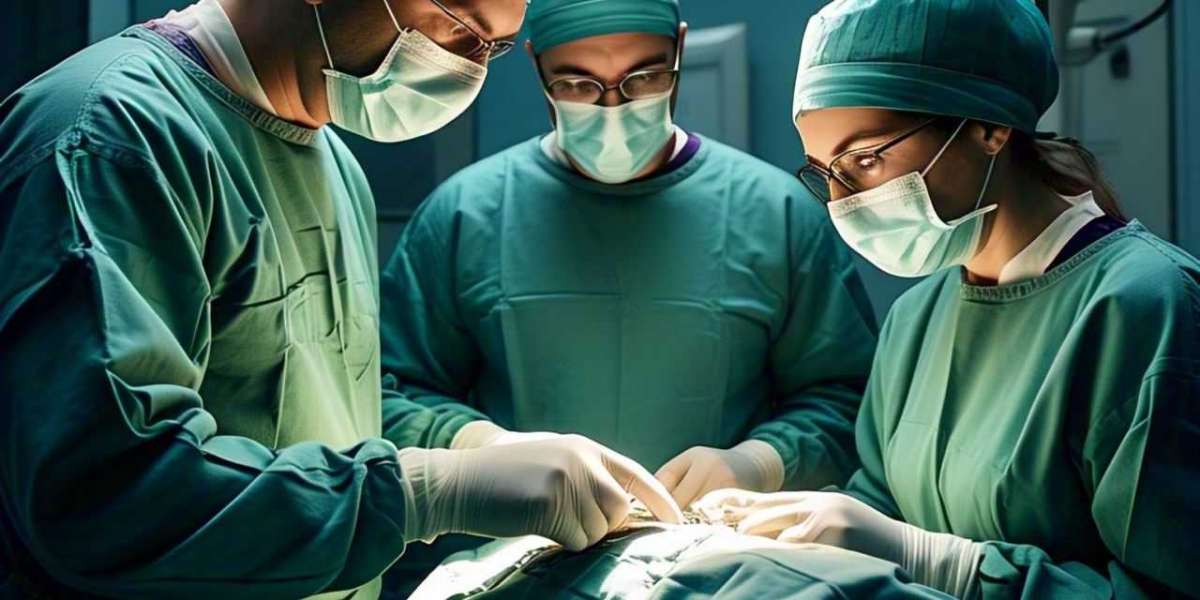Why High-Quality Surgical Instruments Are Essential for Effective Emergency Surgery
Introduction
Emergency surgeries require speed, precision, and reliability. In these high-stakes situations, the quality of surgical instruments plays a critical role in determining the success of the procedure. Poor-quality instruments can lead to surgical errors, increased patient risks, and longer recovery times. Investing in high-quality surgical instruments ensures optimal performance, efficiency, and safety.
1. The Role of Surgical Instruments in Emergency Surgeries
Emergency surgeries demand quick decisions and accurate procedures. Surgeons rely on their tools to make precise incisions, control bleeding, and repair damaged tissues efficiently. Any failure in surgical instruments can lead to severe complications and even life-threatening situations.
2. Importance of Precision in Surgical Instruments
Precision is a key factor in any surgical procedure. High-quality instruments are designed with fine-tuned accuracy to assist surgeons in performing delicate procedures. Instruments with poor craftsmanship may slip or malfunction, leading to errors that could be avoided with better-quality tools.
3. Enhanced Durability for Long-Term Use
High-quality surgical instruments are made from premium materials like stainless steel and titanium. These materials provide strength, resistance to corrosion, and longevity. Inferior instruments often wear out quickly, leading to frequent replacements and increased costs for healthcare facilities.
4. Reducing the Risk of Surgical Complications
Using low-quality instruments increases the risk of complications such as infections, tissue damage, and excessive bleeding. Instruments that are not sharp or properly sterilized can introduce bacteria into the surgical site, endangering patient health.
5. Faster and More Efficient Surgical Procedures
In emergency situations, every second counts. High-quality surgical instruments allow surgeons to work efficiently, reducing the duration of surgery. Faster procedures mean less exposure to anesthesia and lower chances of complications for the patient.
6. Better Handling and Ergonomic Design
Surgeons perform complex procedures that require steady hands and excellent control. Well-designed surgical instruments offer better grip, comfort, and ease of use, helping surgeons perform intricate procedures without fatigue.
7. The Impact of Poor-Quality Instruments on Patient Safety
Low-quality instruments can break or malfunction during surgery, leading to critical failures. Broken tools inside a patient’s body can cause severe internal damage and require additional procedures to remove them.
8. Cost-Effectiveness of Investing in Quality Instruments
While high-quality surgical instruments may have a higher initial cost, they save money in the long run. Their durability reduces the need for frequent replacements, and their efficiency lowers the risk of malpractice claims and surgical revisions.
9. Compliance with Medical Standards and Regulations
Medical authorities set strict standards for surgical instruments to ensure patient safety. Using high-quality instruments ensures compliance with these regulations, reducing legal risks and maintaining the reputation of healthcare facilities.
10. Importance of Proper Sterilization and Maintenance
Sterilization is a crucial aspect of surgical procedures. High-quality instruments are easier to clean and sterilize, reducing the risk of cross-contamination. Poor-quality tools may have rough surfaces or hidden crevices that harbor bacteria, increasing infection risks.
11. Specialty Instruments for Specific Emergency Surgeries
Different emergency surgeries require specific instruments. For example, cardiovascular emergencies need specialized clamps and forceps, while orthopedic surgeries require high-precision bone-cutting tools. Investing in the right instruments ensures optimal surgical outcomes.
12. Choosing the Right Surgical Instrument Supplier
Selecting a trusted supplier is essential for maintaining high standards in emergency surgery. Reliable suppliers provide high-quality instruments that meet medical industry requirements. If you’re looking for precision-crafted surgical tools, check out a trusted provider of surgical instruments.
Conclusion
High-quality surgical instruments are vital for effective emergency surgeries. They enhance precision, reduce risks, improve efficiency, and ensure patient safety. Investing in superior instruments not only benefits surgeons but also contributes to better patient outcomes. Choosing reliable surgical tools is a step toward advancing medical excellence.
FAQs
1. Why are high-quality surgical instruments important in emergency surgery?
They ensure precision, reduce complications, and help surgeons perform procedures efficiently, leading to better patient outcomes.
2. How do poor-quality instruments affect surgeries?
Low-quality instruments can break, cause infections, and lead to surgical errors, increasing patient risks and procedure failures.
3. What materials are best for surgical instruments?
Stainless steel and titanium are commonly used due to their durability, corrosion resistance, and ease of sterilization.
4. How can hospitals ensure they use high-quality instruments?
By sourcing instruments from reputable suppliers that comply with medical standards and conducting regular maintenance and sterilization.
5. Are high-quality instruments more expensive?
Initially, yes, but they save money in the long run by reducing replacements, preventing complications, and improving surgical efficiency.
6. How often should surgical instruments be replaced?
With proper maintenance, high-quality instruments can last for years, but routine inspections help determine when replacements are needed.







